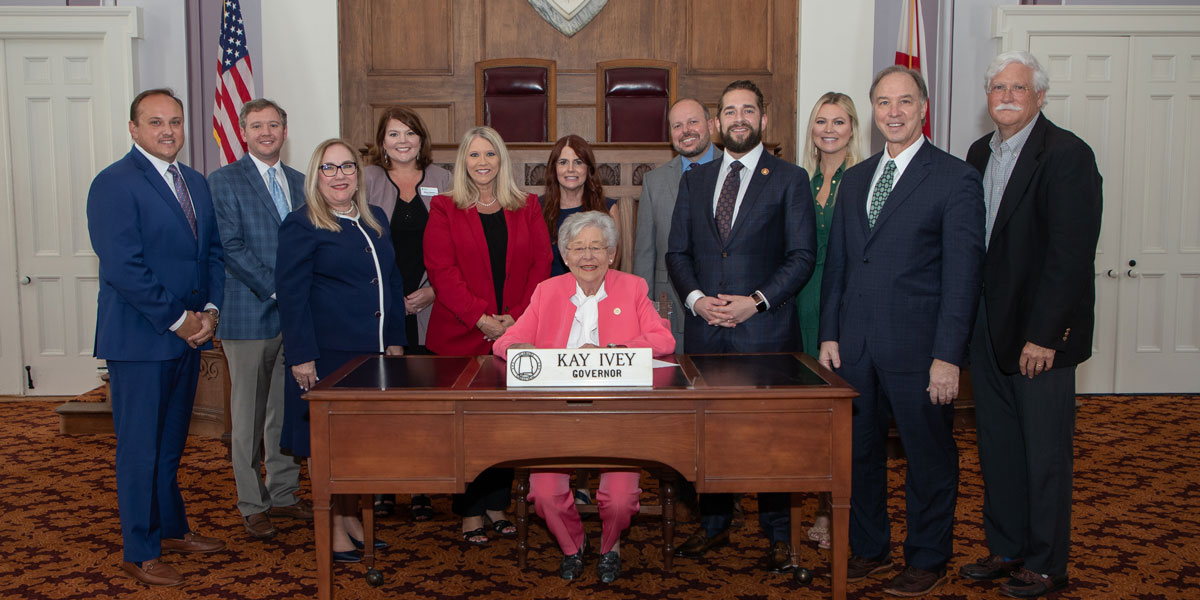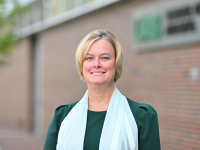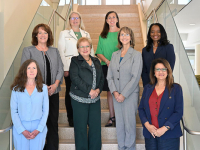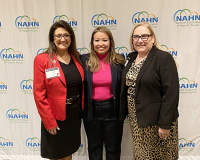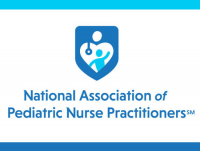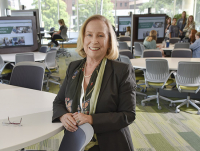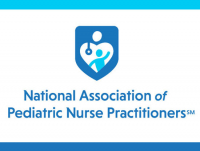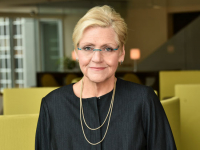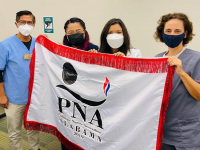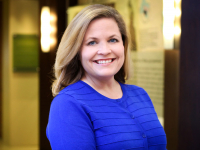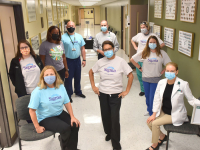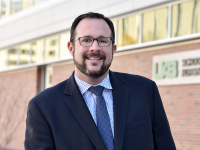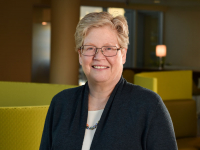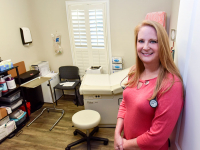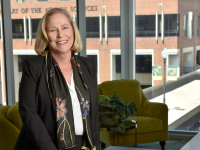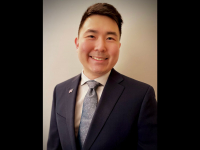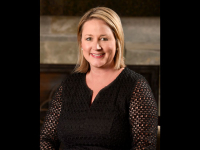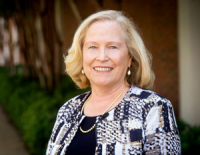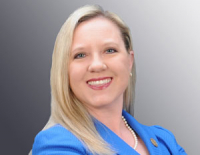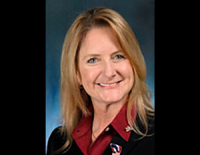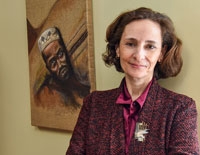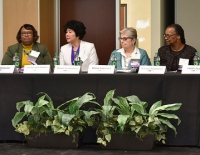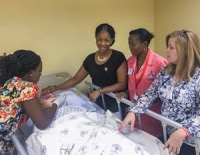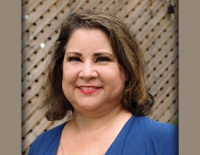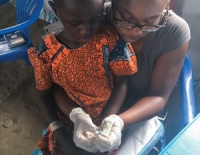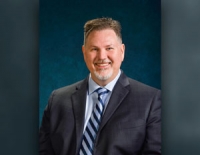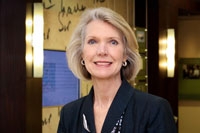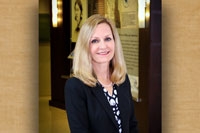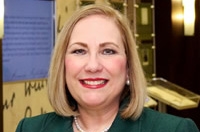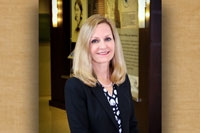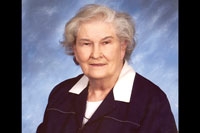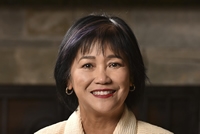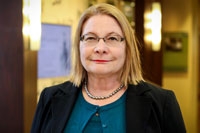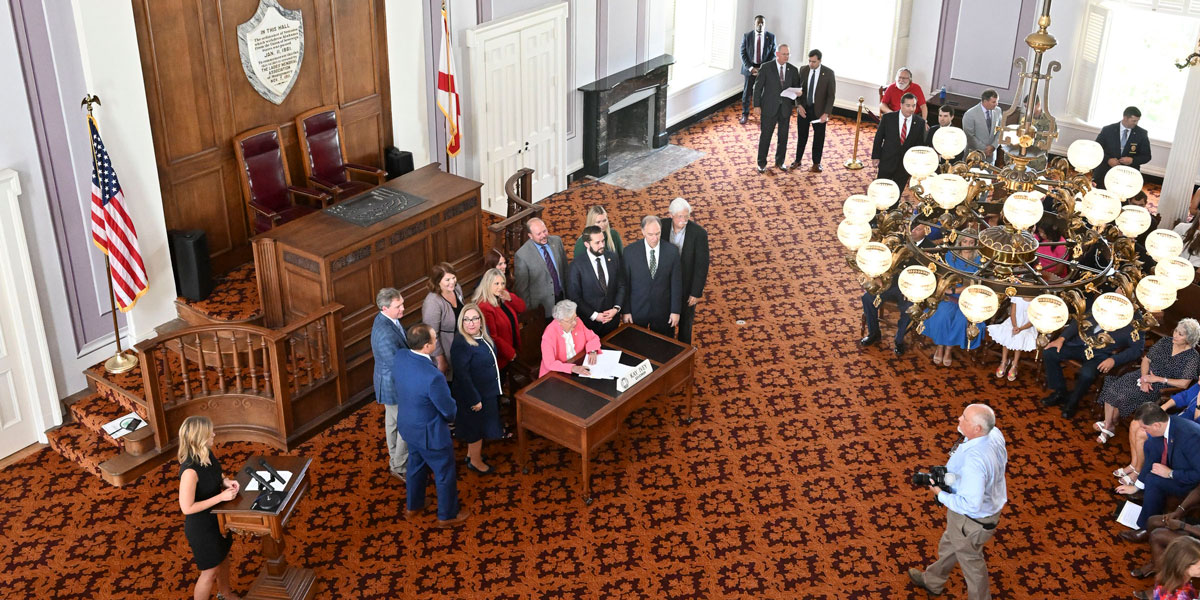
By Jennifer Lollar
The UAB School of Nursing is launching a new initiative designed to leverage the School’s exceptional leadership and health policy work under a single umbrella, and formally investing in training faculty, students and community nurses to lead nursing and health care change at all levels.
The goal is to build and be able to sustain a strong and diverse cadre of nurse leaders educated to shape equitable and patient-centered health care.
“Developing leadership and policy skills is important to position nurses to better impact health and health care through transformational change,” said Dean and Fay B. Ireland Endowed Chair in Nursing Maria R. Shirey, PhD, MBA, RN, NEA-BC, ANEF, FACHE, FNAP, FAAN, Director of the Initiative, an expert in leadership science, and known for health services outcomes research across the health care continuum. “Historically nursing has been seen as a trustworthy profession. However, we have ranked much lower in influence and the ability to influence change.”
The UAB School of Nursing Leadership and Health Policy Initiative is a two-pronged approach that integrates everything that the School has done in leadership and health policy advocacy, puts it forward and takes it to the next level to produce a nursing workforce skilled in embedding leadership development and policy change in systems for the future.
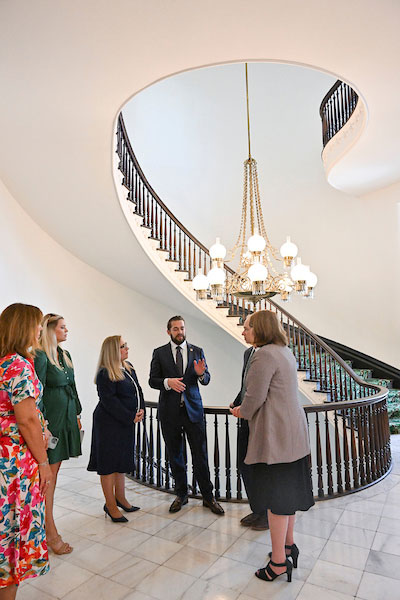
Each arm of the Initiative has six strategic focus areas: (1) Advocacy/ Training/Mentoring; (2) Education (3) Discovery/Research; (4) Sustainability; (5) Dissemination; and (6) Policy Development.
“We, as a School, are known for producing leaders who transform health and our rankings and the number of faculty and alumni in leadership positions, past and present, are proof of our success,” Shirey said. “However, if we want our impact to be sustainable, we must ensure that it continues long after we’re gone. This initiative does that.”
Its Co-Director, Professor and Director of Health Policy Partnerships Joy Deupree, PhD, MSN, RN, WHNP-BC, FAAN (BSN 1994, MSN 1997), said the Initiative is harnessing the expertise of faculty, former faculty and alumni leaders to serve on the UAB School of Nursing Leadership and Health Policy Initiative Advisory Board. These colleagues have developed leadership and policy expertise through their membership or as leaders in various professional organizations and through formal fellowship programs. They include former President of the National Black Nurses Association Inc., and Associate Professor Martha Dawson, DNP, RN, FACHE, FAAN (BSN 1976, MSN 1984), former President of the Alabama State Nurses Association, current Robert Wood Johnson Foundation Health Policy Fellow and Assistant Professor Lindsey Harris, DNP, RN, FNP-BC (MSN 2011, DNP 2016), former President of the Association of Women’s Health, Obstetrics and Neonatal Nursing, former President of Gadsden State Community College, former President of the Alabama Board of Nursing and Visiting Professor Martha Lavender, PhD, RN, FAAN (MSN 1984, PhD 1988), Nurse Practitioner Alliance of Alabama Senior Policy Advisor, UAB Medicine Assistant Director of Advanced Practice Providers and Adjunct Instructor Eileen Meyer, DNP, CRNP, ACNP-BC (MSN 1997, DNP 2017), Professor Emerita and retired Associate Dean for Clinical and Global Partnerships Cynthia Selleck, PhD, RN, FAAN (PhD 1987), and former Interim Executive Director of the Alabama State Nurses Association, Past President of Nurse Practitioner Alliance of Alabama and Adjunct Assistant Professor D’Ann Somerall, DNP, MAEd, FNP-BC, FAANP (BSN 1995, MSN 1999, DNP 2011).
“All of these individuals, who also are UABSON alumni, have an exemplary track record of national leadership, as well as experience and results in advocacy and advancing health policy,” Shirey said. “Combining their experiences with their educational, clinical and scientific nursing expertise is the key leadership foundation for the initiative to ensure it is positioning UAB nurses on the path to transforming health, health care and the profession.”
Kicks off with Health Policy Fellows
The first part of the initiative, the UAB School of Nursing Health Policy Fellows, began with its inaugural class of eight Fellows in September 2023. These mid-to senior-level faculty will engage in didactic and experiential learning.
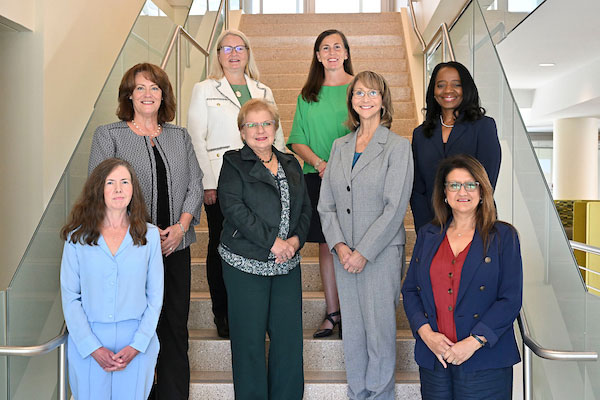
The 2023-2024 Fellows are Adjunct Assistant Professor Grace Grau, DNP, CRNP, ACNP-BC, AACC, FAAN (DNP 2015), Associate Professor Melanie Gibbons Hallman, DNP, CRNP, FNP-BC, ACNP-BC, ENP-C, CNS, FAEN, FAAN (BSN 1983, MSN 1990, MSN 1995, DNP 2012), Associate Professor and MSN Nurse-Midwifery Pathway Director Sharon Holley, DNP, CNM, FACNM, FAAN (MSN 1996), Assistant Professor and Nurse Family Partnership of Central Alabama Director Candace Knight, PhD, RN, FAAN (BSN 1997, PhD 2013), Associate Professor and Department of Family, Community & Health Systems Vice Chair Loretta Lee, PhD, CRNP, FNP-BC (MSN 1991, PhD 2012), Assistant Professor Lisa Pair, DNP, CRNP, WHNP-BC (MSN 1992, DNP 2018), Professor and Rachel Z. Booth Endowed Chair in Nursing Patricia A. Patrician, PhD, RN, FAAN, and Professor and Assistant Dean for Clinical Innovation Shea Polancich, PhD, RN, FAAN (MSN 1996).
“Selection of the Fellows was difficult with so many outstanding leaders in the School interested in the Fellowship,” Deupree said. “Criteria for selection focused on the level of leadership activities each had been involved with, their previous experience in policy and advocacy, as well as the number and quality of the outcomes of those they had mentored. Their mentorship activities were especially important as they will serve as future mentors in subsequent years of the Fellowship.”
Deupree is directing the yearlong Health Policy Fellowship and has vast experience in the field of health policy and health literacy. She has served as the gubernatorial appointee to the Alabama Board of Nursing for APRNs, a gubernatorial appointee to the Alabama Governor’s Health Care Improvement Task Force, a Robert Wood Johnson Executive Nurse Fellow, and is an Ambassador for the National Institute for Nursing Research where she regularly engages with elected officials and their staff in Washington, D.C. to advocate for nursing priorities in research. In addition, she and five colleagues founded the Nurse Practitioner Alliance of Alabama in 2006, where she served as president and senior adviser for policy and championed passage of legislation in 2013 that paved the way for CRNPs and CNMs to have prescriptive privileges for controlled substances. Deupree currently co-leads the AARP and RWJF Future of Nursing State Action Coalition in Alabama.
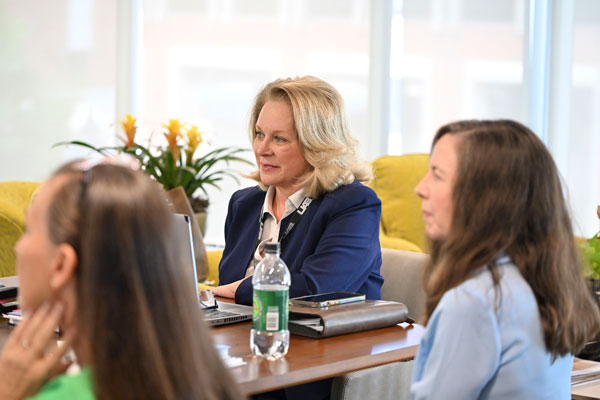
She said nurses have a unique perspective of the social and economic factors that impact health and well-being. They spend more time with patients than any other health care professional especially when hospitalized, which should provide them with a platform to make recommendations on how to streamline health care delivery, improve patient safety, patient outcomes and nursing practice and education.
“The Fellows will spend the next year developing a deep understanding of policy, advocacy and communication techniques, as well as negotiation skills, through in-person interactions with health care executives and elected officials,” Deupree said. “They will learn to foster collaborative and innovative relationships to drive policy change leading to improved patient outcomes. They also will complete an advocacy project to demonstrate understanding of the advocacy and policy-making process. At the end of their year, they will understand how to use the platform inherent to the profession to help create change.”
The Fellows will have in-house mentors, including Deupree, Dawson, Lavender, Meyer, Selleck and Somerall. The mentors will work with Fellows one-on-one during the second phase of the program when they begin to engage with elected officials and influential leaders and health care executives. Additionally, the mentors will guide Fellows as they choose and develop their advocacy projects. The mentors have the expertise and experience in advocacy, health policy and engagement activities to complement the entire Health Policy Fellowship.
The advisory board also will provide feedback on the curricula that has been developed for the Health Policy Fellowship. Upon conclusion of the first year of the Fellowship, members of the advisory board will assist with evaluation to further enhance didactic and experiential learning for future Fellows.
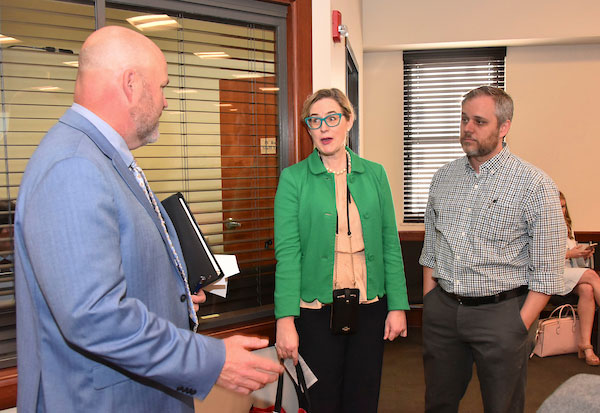
Other faculty and alumni will contribute to the content by sharing their experiences and knowledge, through lectures for the Fellowship, including immediate Past President of the Gerontological Advanced Practice Nurses Association and Professor Natalie Baker, DNP, CRNP, ANP-BC, GNP-BC, CNE, GS-C, FAANP, FAAN (BSN 1985, MSN 1990, DNP 2010), Associate Dean for Diversity, Equity and Inclusion and Professor Felesia Bowen, PhD, DNP, RN, PPCNP-BC, FAAN, Chief Nursing Officer at UAB Hospital and Assistant Dean for Practice Terri Poe, DNP, RN, NE-BC (BSN 1986, DNP 2013), Professor and Chair of the Department of Healthcare Administration and Informatics at Samford University Carol J. Ratcliffe, DNP, RN, COI, FACHE (MSN 1995) and Professor Patricia Speck, DNSc, CRNP, FNP-BC, AFN-C, DF-IAFN, DF-AFN, FAAFS, FAAN. Shirey said that the long-term goal is to expand its reach to doctoral students, undergraduate honors students and community nurses to create widespread impact.
“We will eventually make this available to students, starting with doctoral to master’s and then to undergraduate, so they understand what advocacy means and how you present yourself and make logical and compelling arguments to facilitate change,” she said. “After students, we will move to nurses in the community.”
Leadership development on the horizon
The second part of the initiative will center around leadership development. The School has been known for many years for its capacity to educate leaders, having its leadership and administration pathways in the graduate program highly ranked for more than a decade.
“Leadership development outside of educational pathways often happens informally,” Shirey said. “We have a cadre of experts who we are deploying to formally invest in our people at a different level. Leadership sets the tone for action, and we are developing leaders who know how to monitor the environment and connect the dots for where the future is going and positioning their organizations in a strategic direction for meaningful transformational change.”
She added that those working on the leadership side of the initiative will be expected to not just educate but also role model and share knowledge with others, creating opportunities, facilitating resources and putting people out there in a supported way and be mentored to refine their leadership approaches.

“A fundamental strategy for building leaders is that of professional generosity, that is the ability to share what you have and what you know with others to raise them up,” Shirey said. “We all grow by lifting each other.”
She added that part of the formal training will be reinforcing the concept that what’s important is not that you hold the title of leader but that you act as a leader in everything you do.
“The notion is that you are not a leader just because you hold a formal title but rather everyone should have those leadership abilities to be able to set their own direction because at the end of the day, we want our work to matter,” she added. “And part of being a leader also is leaving a place better for those who follow. I think if we can equip our faculty, students and community nurses to do just that, then we become a multiplier and broaden the UAB School of Nursing’s influence.”
Nurses with unique, needed skills
The UAB School of Nursing Leadership and Health Policy Initiative is equipping not only the nurses who are formally participating in the initiative with a skillset that is unique, the Initiative also is working across academic programs to ensure all students are introduced to leadership and policy advocacy skills. The goal is to teach professional comportment and other similar concepts to help expand their knowledge base to move action more broadly.
“Clearly, with the new AACN Essentials, many components are being woven into our curricula and we are working with academic leadership to ensure health policy is woven in as well,” Shirey said. “This initiative will equip not only those who are Fellows or other participants in the initiative but also will make sure everyone in the School is introduced to these concepts through professional development and other opportunities. We’re building competency and making a measurable difference and the more that we can build capacity, the better we will be in the future.
This initiative will leave no leader behind and help us to pass the health policy baton forward to take us to the next level of excellence with momentum, with knowledge, and with the ability to make an impact further advancing our leadership legacy.”
